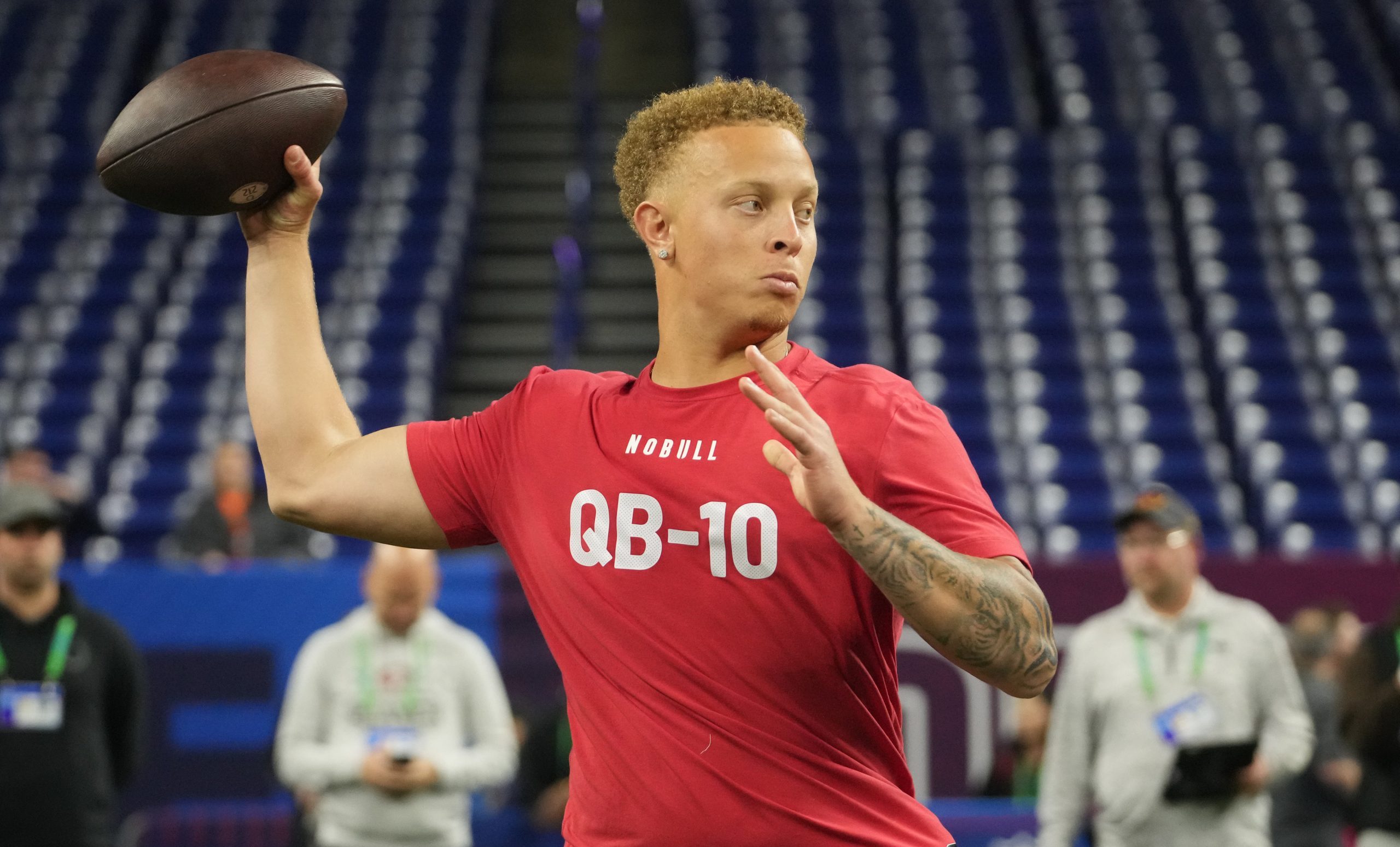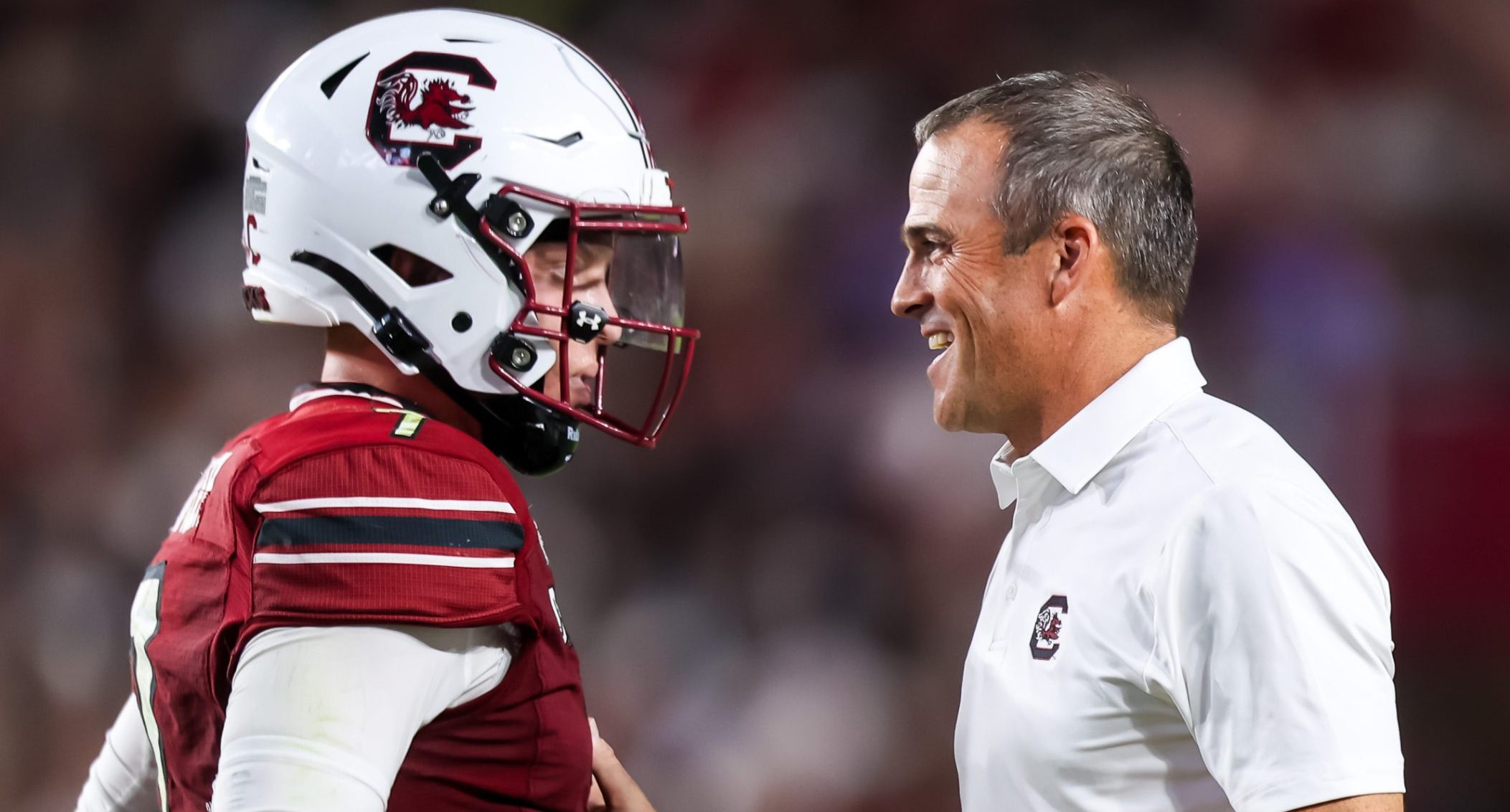When a troubling story comes out about a sports team or organization, there are generally three possible responses. One is outright denial, a second is “We’re investigating,” and a third is an admission and apology. The Columbus Blue Jackets initially chose the second response and then the first one in the wake of NHL on TNT analyst Paul Bissonnette’s report on his Barstool Sports Spittin’ Chiclets podcast about Columbus head coach Mike Babcock asking players for their phones and then AirPlaying them on his office TV.
But, after Bissonnette pushed back, the NHLPA conducted their own investigation. And after they met with players, Babcock stepped down Sunday, but that was announced in a release that was very favorable to him. That raises further questions about both the team’s initial reaction and eventual handling of the situation. Here are those first media reports of the team investigating, and then the first team statement quoting Babcock and captain Boone Jenner:
#CBJ are aware of these allegations and looking into them. No official response yet.
Babcock and Jenner have not immediately responded to requests seeking comment. https://t.co/PYjs5MX3YG— Aaron Portzline (@Aportzline) September 12, 2023
Spoke to two #CBJ officials. One says this is being looked into, the other says "Total BS, will clarify soon."
Waiting on the clarification and/or a statement from the team. https://t.co/LhpXkQSOIi
— Brian Hedger (@BrianHedger) September 12, 2023
Columbus Blue Jackets Head Coach Mike Babcock and center Boone Jenner have released the following statement:
📝 https://t.co/ytvGVXzF2w pic.twitter.com/htlgl1UgAR
— Columbus Blue Jackets (@BlueJacketsNHL) September 12, 2023
And here are the key comments in the Sunday release announcing Babcock’s departure:
“This was a difficult decision on everyone’s part, but one we felt necessary to ensure our focus remains on the players and the team’s upcoming season,” said Blue Jackets General Manager and Alternate Governor Jarmo Kekalainen. “On behalf of the entire Blue Jackets organization, we want to thank Mike for his hard work and the professionalism he has shown in working together on a plan to step down.”
“Upon reflection, it has become clear that continuing as head coach of the Columbus Blue Jackets was going to be too much of a distraction,” said Babcock. “While I’m disappointed to not have had the opportunity to continue the work we’ve begun, I know it’s in the best interest of the organization for me to step away at this time. I wish everyone in the organization well in the upcoming season.”
First, it’s worth looking back at the initial response. The comments from one team source to Hedger (the Blue Jackets’ beat writer at The Columbus Dispatch) and an unknown number of sources to Portzline (who holds a similar role at The Athletic) that they were looking into it are reasonable. But the other source who spoke to Hedger and called it “total BS” illustrates the denial response right from the start, even before the team investigated.
And that team investigation sure didn’t seem to get too far. It only appeared to produce the team-amplified statements from Babcock and Jenner on Bissonnette’s claims being “a gross misrepresentation,” “extremely offensive,” “irresponsible and completely inaccurate,” and “blown out of proportion.”
That led to Bissonnette pushing back himself with extremely strong language, and with screenshots of texts from past players taking exception to Babcock doing similar things with their teams. And it led to the NHLPA investigation, which found that some Blue Jackets’ players were truly bothered by this despite Jenner and others saying they were okay with it. And that eventually led to a very strong NHLPA statement around Babcock’s exit. Here’s that statement, from NHLPA executive director Marty Walsh:
“Our players deserve to be treated with respect in the workplace. Unfortunately, that was not the case in Columbus. The club’s decision to move forward with a new head coach is the appropriate course of action.”
So that brings up a lot of issues with how the team handled this with their initial comments and internal investigation. Portzline brought some of those up in a piece titled “Mike Babcock’s resignation raises troubling questions about Blue Jackets organization.” Some key highlights:
Sure, these interactions were deemed acceptable by veteran players Boone Jenner and Johnny Gaudreau, who both made public statements in defense of Babcock. But the NHLPA began to get to more input from other players — within the Blue Jackets’ dressing room and perhaps beyond — that was much more damning, painting the interactions as nothing less than an invasion of privacy by players who didn’t feel empowered to resist the veteran coach.
Burning question: Did the Blue Jackets know the extent of Babcock’s interactions with players when this was first revealed? If they did know the extent and tried to bury this story before it got started, that says not-great things about the club’s decision-makers, from president of hockey operations John Davidson to general manager Jarmo Kekalainen and others.
But if they didn’t know the extent of Babcock’s invasion of privacy, that says something that should truly concern the Blue Jackets — all the way up to the ownership level.
That would suggest that Blue Jackets players — veterans and/or young players — feel more comfortable speaking their truth to people like Bissonnette and the NHLPA than they are to the people in charge of the Blue Jackets organization. If that’s the case, the McConnell family — as hands-off as any ownership group in pro sports — might have to demand answers.
And as Frank Seravalli wrote at Daily Faceoff, in a piece titled “When will the sword fall on GM Jarmo Kekalainen in Columbus?”, the eventual statement around Babcock’s exit deserves criticism as well:
Blue Jackets GM Jarmo Kekalainen somehow thanked Babcock for his “hard work,” which allegedly included inspecting players’ camera rolls on their phones, and “professionalism” in working with the team to step down. No joke. If Babcock had any professionalism, he’d still be employed.
Then, the Blue Jackets allowed Babcock to issue his own quote, as if anyone was going to buy that Babcock was somehow noble enough to fall on his own sword and step away – like it wasn’t abundantly obvious that the NHL Players’ Association was armed with evidence that forced his departure.
Babcock allegedly intimidated and bullied the youngest players in the Blue Jackets’ organization and Kekalainen thanked him for his service. There was no apology, no support for his players, or even a denouncement of Babcock’s alleged actions, a strongly worded statement that they would not be tolerated in Columbus. It was a statement devoid of leadership. If the written word can elicit a smell, the Blue Jackets’ release on Sunday reeked of defiance, perhaps no surprise given that Kekalainen already raised a middle finger to Johan Franzen and anyone else who was maligned by Babcock’s previously alleged mistreatment of players when he hired him three months ago.
Meanwhile, Columbus president of hockey operations John Davidson didn’t exactly inspire a lot of confidence with his own comments Monday:
President John Davidson to those who were critical of Mike Babcock's hiring as @BlueJacketsNHL from the moment his name was floated:
"Maybe they were right."
— Greg Wyshynski (@wyshynski) September 18, 2023
Maybe, really? At this point? That’s certainly a comment to make.
The Blue Jackets are not the only sports organization to initially get defensive in disputing reporting before eventually having to correct. One of the worst cases of this came from the New York Mets in January 2021, where they sent a statement disputing ESPN’s reporting on Jared Porter’s explicit texts before even reading that reporting. (They eventually fired Porter after reading that piece and realizing the “full breadth” of the allegations.)
The Baltimore Orioles’ initial response to reporting from this site and others on Kevin Brown also bears mention. And at least there wasn’t a fake statement here, unlike what we saw with the Spanish soccer federation this summer. But still, the Blue Jackets’ response here illustrates the problems with teams getting overly defensive around critical reporting. Taking time to look into allegations yourself before commenting is fair; bashing those allegations before fully looking into them is a worse idea, and can lead to eventual backtracking like this (and even the team’s eventual backtracking was still very favorable to Babcock).
Disputing reporting is a reasonable approach when you’re sure it’s wrong, as we saw with the Alabama basketball and Georgia football teams this year. But you’d better be sure it’s wrong. If you’re not, but deny it anyways, you often wind up coming out looking a whole lot worse.







